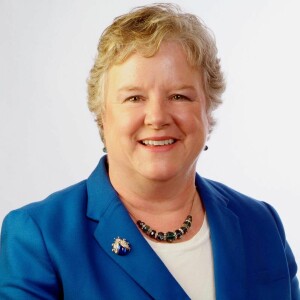Episodes

Thursday Dec 22, 2016
Harnessing Gut Bacteria to Treat Disease
Thursday Dec 22, 2016
Thursday Dec 22, 2016
While there has been much buzz in the industry over the potential for harnessing the microbiome and using it as a way to treat disease, it remains early days for the therapeutic pipeline. Rebiotix, which is delivering human-derived microbes to treat recurrent Clostridium difficile infections, is ready to move its lead experimental therapeutic into late-stage clinical testing. The company says it is the most advanced human clinical program evaluating a microbiota-based drug conducted in coordination with a regulatory authority. We spoke to Lee Jones, founder and CEO of Rebiotix, about the microbiome, the opportunity for drugs targeting the colonies of bacteria in the gut, and the indications beyond c. diff Rebiotix is pursuing.

Thursday Dec 15, 2016
A Look at What’s Ahead for Biopharma in 2017
Thursday Dec 15, 2016
Thursday Dec 15, 2016
Investors bid up biopharmaceutical stocks following the election of Donald Trump as President of the United States. It reflected a belief that a Trump administration will remove the threat of price controls on drugs and bring about a friendlier regulatory environment at the FDA. We spoke to Amy Brown, senior reporter and author of the EP Vantage 2017 Preview, about what’s in store for the biopharmaceutical sector in the year ahead, what to look for, and why it may turn out to be a big year for M&A activity.

Thursday Dec 08, 2016
AMA Wants Docs to Have Seat at mHealth Table
Thursday Dec 08, 2016
Thursday Dec 08, 2016
The advent of digital health devices and mobile health apps has the potential to improve care, change patient behavior, and permit doctors to intervene early when the health of a patient changes. But the American Medical Association wants to ensure that as these devices proliferate, doctors have a role in guiding their design and determining their worth. We spoke to James Madara, CEO of the AMA, about new principles its adopted to promote safe and effective mHealth applications, the concerns physicians have about the use of these apps, and how he sees them reshaping healthcare.

Thursday Dec 01, 2016
Testing of New HIV Vaccine Carries Hopes of a Breakthrough
Thursday Dec 01, 2016
Thursday Dec 01, 2016
A clinical trial of an experimental vaccine against HIV that just began in South Africa is raising new hopes of making new strides against the disease. The trial follows recent news of tests in animals that suggest the vaccine, in combination with an innate immune stimulant may be able to put infected patients into remission. We spoke to Colonel Nelson Michael, director of the U.S. Military HIV Research Program at the Walter Reed Army Institute of Research, about the new trial, how this vaccine builds on what was learned from a clinical trial in Thailand from an earlier version of the vaccine, and why there’s hope of related work moving researchers towards a functional cure for the disease that could free patients from the need for antiretroviral therapy for extended periods.

Thursday Nov 24, 2016
Centrexion Takes Aim at Pain with Growing Portfolio of Non-Opioid Therapeutics
Thursday Nov 24, 2016
Thursday Nov 24, 2016
Pain takes both a personal toll on individuals who suffer from it and an economic toll on society more broadly. Though there is a wide range of drugs available to treat pain, it’s a problem that is still not well addressed. The need for new pain therapies has become even more acute as the problem of opioid addiction has grown. We spoke to Kerrie Brady, founder and chief business officer of Centrexion Therapeutics, which is developing a pipeline of non-opioid pain drugs. Brady discussed the problem of today’s existing pain therapies, how the company is using Big Data in its pursuit of new drugs, and its strategy of building out its pipeline.

Friday Nov 18, 2016
Bringing Women into Biotech Boardrooms
Friday Nov 18, 2016
Friday Nov 18, 2016
A number of studies have recently called attention to the lack of gender diversity in leadership positions in the life sciences industry. Women in BIO and LifeSci Advisors have taken steps to increase the presence of women in the boardroom of biotech companies through a new training program to get women boardroom ready, as well as the creation of an initiative to help place qualified women onto the boards of companies. We spoke to Dawn Hocevar, president elect of Women in Bio and Michael Rice, founding partner of LifeSci Advisors about their efforts, why there aren’t more women on the boards of biotech companies today, and what has to be done to remedy the problem.

Thursday Nov 10, 2016
Novartis Deal Validates Perlara’s Approach to Rare Disease Drug Discovery
Thursday Nov 10, 2016
Thursday Nov 10, 2016
Perlara is a drug discovery company focused on using model organisms to find treatments for diseases previously believed to be too rare to cure. Recently Perlara entered into a drug discovery and development collaboration with Novartis, a deal that included an equity investment and is seen as validating Perlara’s platform. We spoke to Ethan Perlstein, CEO of Perlara, about the company’s unique approach to drug discovery, why it focuses on the diseases it does, and the significance of its agreement with Novartis.

Thursday Nov 03, 2016
Harvesting the Aquatic Microbiome for New Drugs
Thursday Nov 03, 2016
Thursday Nov 03, 2016
There’s been much buzz about the microbiome, but what that constitutes can mean different things to different people. Biosortia Pharmaceuticals is focusing on the aquatic microbiome as a rich source of potential first-in-class small molecules to address unmet medical needs. We spoke to Ross Youngs, founder and CEO of Biosortia, about what makes the aquatic microbiome compelling as a source of new drugs, how the company goes about mining it for potential compounds, and what the company’s growing pipeline looks like.

Daniel Levine
Daniel Levine is an award-winning business journalist who has reported on the life sciences, economic development, and business policy issues throughout his career. He is founder and principal of Levine Media Group, host of The Bio Report and RARECast podcasts, a senior fellow at the Center for Medicine in the Public Interest, and author of Global Genes’ annual NEXT report on emerging trends in the world of rare disease. From 2011 to 2014, he served as the lead editor and writer of Burrill & Company’s acclaimed annual book on the biotech industry. His work has appeared in numerous national publications including The New York Times, The Industry Standard, and TheStreet.com.

